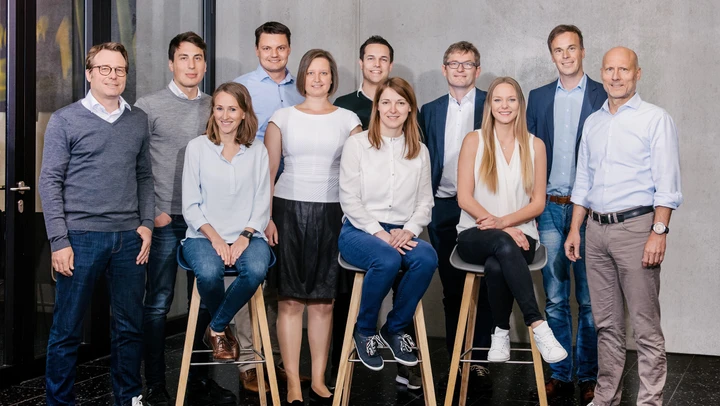 © Bert Willer
© Bert WillerStart-ups play a key role in making our society and economy more sustainable. We asked Johannes von Borries, Managing Partner at Unternehmertum Venture Capital Partners (UVC Partners), about the investor’s perspective: Why does sustainability make sense for start-ups economically? How can a venture capital fund provide support? And how do you actually evaluate the impact of an investment?
In its publication on start-up incubators and accelerators, the United Nations Framework Convention on Climate Change (UNFCCC) clearly states: we need technology to weaken global warming. With pioneering achievements, start-ups play one of the leading roles here: they develop and validate new technologies and bring innovation to life - often faster than bigger companies. The German Startup Monitor 2019 confirms: “Start-ups are often pioneers when it comes to introducing environmental innovations to the market.” But what are the economic prospects?
[T]here are huge opportunities in the energy, transport, manufacturing and services markets, to name a few, for entrepreneurs willing to create new goods and services that embody climate technologies. In exploiting these opportunities, entrepreneurs will be combating climate change and also creating jobs and supporting sustainable development.
UNFCCC report “Climate Technology Incubators and Accelerators”, pg. 11
Do Start-ups Make the World a Better Place?
Motivation is usually already in play: "Inherently, founders want to improve the world", says Johannes von Borries, reflecting on his encounters with entrepreneurial teams. It’s all about the right pinch of idealism though: "Some have had a one-sided focus on impact. Thinking 'I'm not allowed to make money and everyone’s here only out of conviction' doesn’t allow a company to develop successfully. As a consequence, the product’s positive effect remains small.”
Success With the Right Dose of Idealism
An example from the portfolio of UVC Partners illustrates the relation. Flixbus, in which UVC Partners was one of the first funds to invest, did not launch as a "green" start-up. Nevertheless, the giant is now one of the key drivers of shared mobility in Europe - thus generating enormous CO2 savings in the transportation sector.
In terms of their impact, start-ups that are economically successful and at the same time aligning with social and ecological standards perform better. And: the one causes the other. A study by TechFounders on sustainability in start-ups confirms that ventures with a sustainable agenda attract more customers and more potential employees. "Large new markets are emerging as well. The topic is definitely becoming more important", says von Borries.
Impact Score: Evaluating Sustainable Investments
The team at UVC Partners acts on a clear investment strategy aligned with the United Nations’ 17 Sustainable Development Goals (SDGs). Hardly anyone else in the venture capital industry approaches the topic of sustainability so systematically.
We evaluate all start-ups with an impact score. For each SDG, we check how they’re affecting it and assign points. This is critical for our decision: we only invest in the team if the overall score is positive.
Johannes von Borries, Managing Partner at UVC Partners
Different to impact funds, a higher positive impact score doesn’t mean that UVC Partners prefers the start-up as an investment. “This approach doesn’t take economic viability into consideration. More sustainable start-ups are not necessarily more profitable. We have to be sure that the team will be financially successful. However, there is no trade-off: a high positive impact score cannot be offset against a small market, for example, just as an attractive business model does not justify a negative impact. The positive effect of the business is an independent condition”, explains von Borries.
UVC Partners accompanies the teams in their development and supports them with an extensive network and experience. Both pursue the impact together: "With each of our portfolio start-ups we hold a workshop and ask 'How do you make sure that you’re sustainable?’ Each start-up selects three of the development goals (SDGs) that they’ll be pursuing." Checking the results ensures that the investment not only turns into economic value but makes a contribution to society and the planet, too.
Contact
Johannes von Borries, Managing Partner at UVC Partners
borries@uvcpartners.com

























